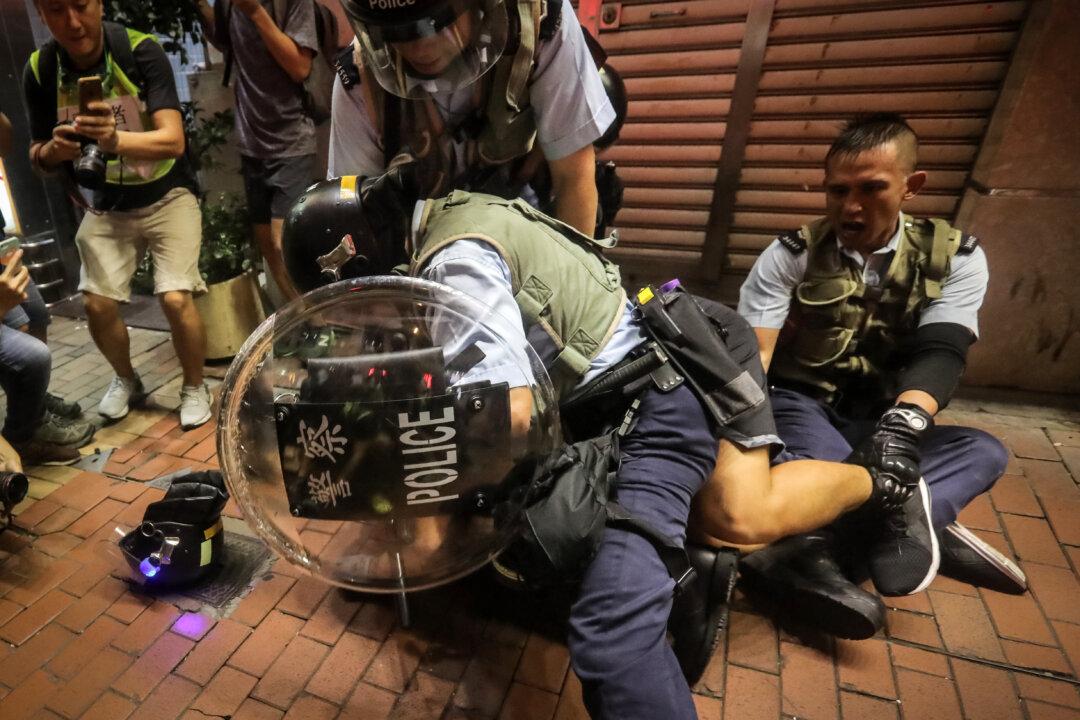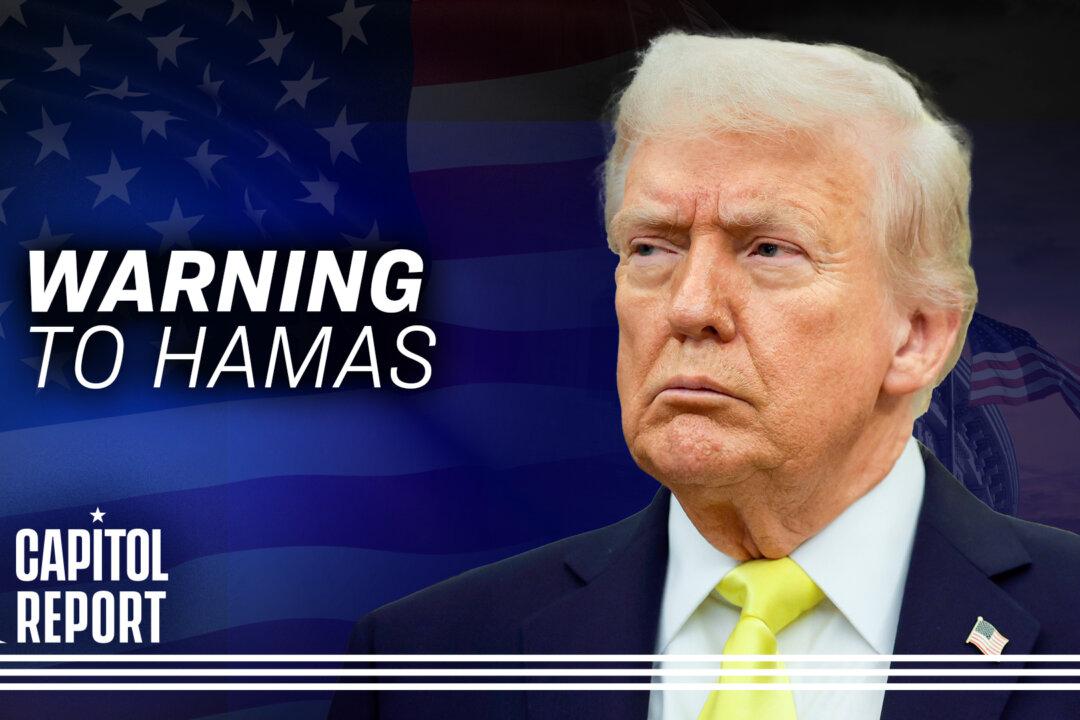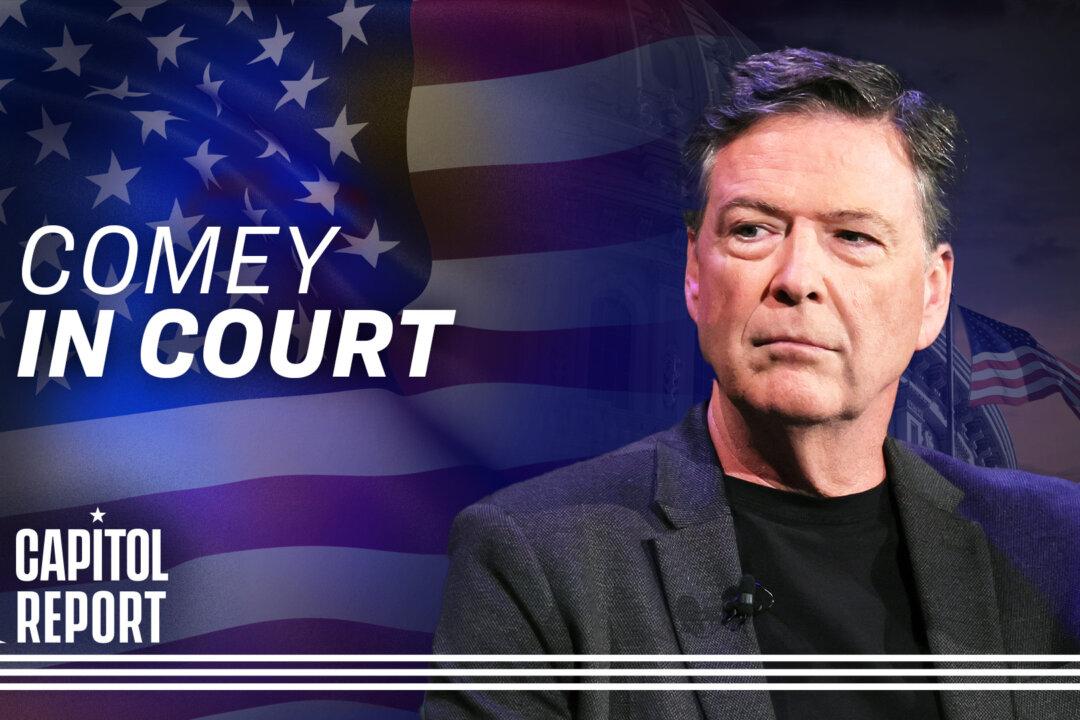Fresh violence broke out in the late evening of July 7 as riot police clashed with a group of protesters in the Mong Kok neighborhood of Hong Kong. Five protesters were arrested for allegedly assaulting a police officer and obstructing police duties, according to a police statement.
Earlier in the afternoon, organizers said more than 230,000 participated in a peaceful march calling for a controversial extradition bill to be scrapped.





